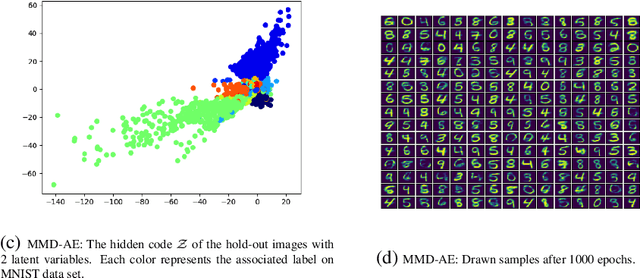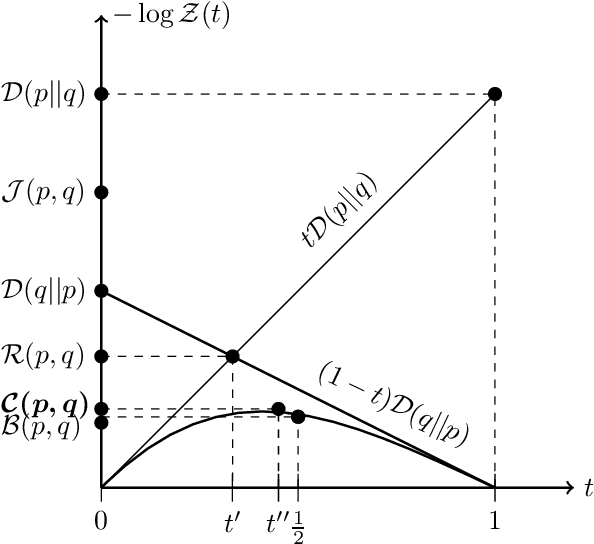Mahdi Azarafrooz
Adaptive Variational Particle Filtering in Non-stationary Environments
Jul 19, 2018


Abstract:Online convex optimization is a sequential prediction framework with the goal to track and adapt to the environment through evaluating proper convex loss functions. We study efficient particle filtering methods from the perspective of such a framework. We formulate an efficient particle filtering methods for the non-stationary environment by making connections with the online mirror descent algorithm which is known to be a universal online convex optimization algorithm. As a result of this connection, our proposed particle filtering algorithm proves to achieve optimal particle efficiency.
Doubly Stochastic Adversarial Autoencoder
Jul 19, 2018


Abstract:Any autoencoder network can be turned into a generative model by imposing an arbitrary prior distribution on its hidden code vector. Variational Autoencoder (VAE) [2] uses a KL divergence penalty to impose the prior, whereas Adversarial Autoencoder (AAE) [1] uses {\it generative adversarial networks} GAN [3]. GAN trades the complexities of {\it sampling} algorithms with the complexities of {\it searching} Nash equilibrium in minimax games. Such minimax architectures get trained with the help of data examples and gradients flowing through a generator and an adversary. A straightforward modification of AAE is to replace the adversary with the maximum mean discrepancy (MMD) test [4-5]. This replacement leads to a new type of probabilistic autoencoder, which is also discussed in our paper. We propose a novel probabilistic autoencoder in which the adversary of AAE is replaced with a space of {\it stochastic} functions. This replacement introduces a new source of randomness, which can be considered as a continuous control for encouraging {\it explorations}. This prevents the adversary from fitting too closely to the generator and therefore leads to a more diverse set of generated samples.
On the Information Theoretic Distance Measures and Bidirectional Helmholtz Machines
Jul 16, 2018

Abstract:By establishing a connection between bi-directional Helmholtz machines and information theory, we propose a generalized Helmholtz machine. Theoretical and experimental results show that given \textit{shallow} architectures, the generalized model outperforms the previous ones substantially.
 Add to Chrome
Add to Chrome Add to Firefox
Add to Firefox Add to Edge
Add to Edge